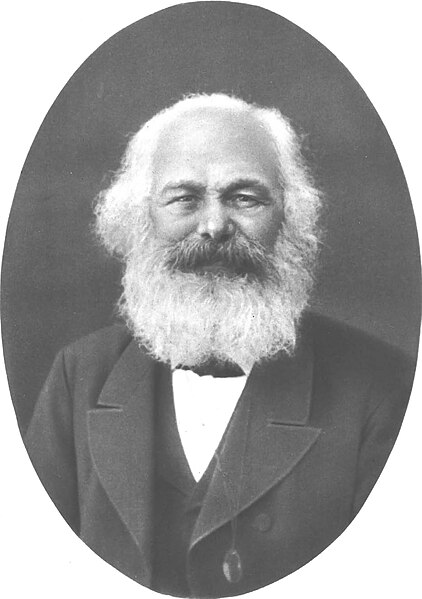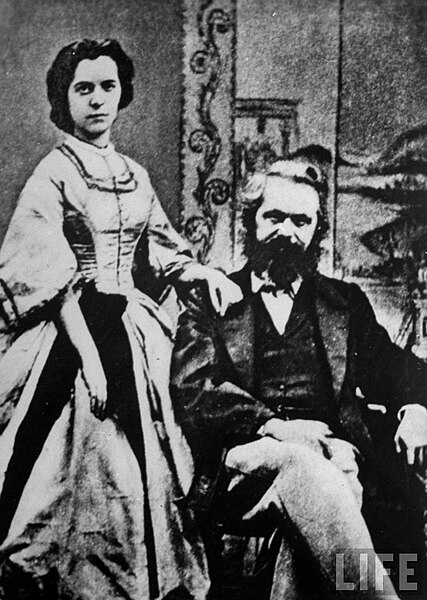Karl Marx, a towering figure in 19th-century philosophy and economics, left a lasting imprint on the world with his theories on capitalism, socialism, and class struggle.
Despite living in an era vastly different from our own, Marx’s ideas continue to reverberate through contemporary society, shaping political discourse, inspiring social movements, and informing academic research.
In this article, we explore the enduring legacy of Marx’s work, examining its influence on modern societies and its relevance to pressing issues such as inequality, exploitation, and the pursuit of social justice.
Through a nuanced analysis of Marx’s contributions, we uncover how his theories continue to resonate with challenges faced by individuals and communities in the 21st century, offering insights that remain as pertinent today as they were during Marx’s lifetime.
Karl Marx Facts
1. Karl Marx was born on May 5, 1818, in Trier, Germany
Karl Marx, born on May 5, 1818, in Trier, Germany, came from a middle-class family of Jewish descent. His father, Heinrich Marx, was a lawyer.
Also Read: Timeline of Karl Marx
Despite originating from a comfortable background, Marx’s family faced financial difficulties, and his father converted to Protestantism to avoid anti-Semitic laws, which affected Marx’s upbringing and later views on social inequality.

2. He co-authored “The Communist Manifesto” with Friedrich Engels in 1848
In 1848, Marx and Friedrich Engels co-authored “The Communist Manifesto,” a seminal work that outlined their vision of historical class struggles and the inevitable triumph of the proletariat over the bourgeoisie.
The manifesto called for the overthrow of capitalist systems and the establishment of a classless society based on common ownership of the means of production.
It became a foundational text for socialist and communist movements worldwide, advocating for the rights of the working class and challenging the existing social order.
3. Marx developed the theory of historical materialism
Marx developed the theory of historical materialism, a cornerstone of his philosophical and economic thought. According to this theory, the development of human societies is shaped by material conditions, particularly the mode of production and the relationships between social classes.
Also Read: Vladimir Lenin Timeline
Marx argued that historical progress occurs through class struggle, with each stage of history characterized by a dominant mode of production and corresponding class relations.
This perspective provided the analytical framework through which Marx examined the dynamics of capitalism and predicted its eventual demise.
4. He critiqued capitalism for its exploitation of labor and inherent contradictions
Marx’s critique of capitalism was multifaceted, focusing on its fundamental contradictions and exploitative nature. He argued that capitalism, while generating wealth and technological advancement, inherently leads to social inequality and alienation.
Marx highlighted the exploitation of labor under capitalism, where workers are paid wages that are typically lower than the value of the goods or services they produce.
This surplus value, Marx contended, is appropriated by the capitalist class, leading to the accumulation of wealth and widening disparities between the bourgeoisie and the proletariat.

5. Marx believed in the inevitability of proletarian revolution
Marx envisioned a proletarian revolution as the inevitable outcome of the class struggle within capitalist societies. He believed that the working class, or proletariat, would develop class consciousness and organize to overthrow the capitalist system.
Through revolutionary action, Marx argued, the proletariat would seize control of the means of production and establish a socialist society based on common ownership and democratic control.
This vision of proletarian revolution as the catalyst for social transformation became a central tenet of Marxist theory and inspired revolutionary movements worldwide, particularly in the 20th century.
Marx’s ideas on revolution were later developed and adapted by various socialist and communist movements, shaping revolutionary strategies and tactics in different historical contexts.
6. His ideas influenced socialist and communist movements worldwide
Karl Marx’s ideas have exerted a profound influence on socialist and communist movements worldwide. His theories on class struggle, historical materialism, and the critique of capitalism provided the ideological foundation for various socialist and communist parties, organizations, and revolutions throughout the 19th and 20th centuries.
Marx’s emphasis on the emancipation of the working class and the establishment of a classless society resonated with activists and intellectuals seeking to challenge entrenched power structures and promote social equality.
From the Russian Revolution of 1917 to the rise of communist regimes in China, Cuba, and beyond, Marx’s ideas inspired revolutionary movements that sought to transform society along socialist principles.
Moreover, Marx’s writings continue to inform contemporary socialist and leftist movements, providing critical insights into the dynamics of capitalism and the pursuit of alternative socio-economic systems.
Despite divergent interpretations and adaptations, Marx’s enduring influence on socialist and communist thought remains evident in ongoing struggles for social justice, labor rights, and egalitarianism around the globe.

7. Marx’s legacy continues to shape political discourse and social movements
Marx’s legacy extends far beyond his lifetime, influencing not only political thought but also social movements and academic disciplines. His ideas have been central to the development of socialist and communist movements worldwide, inspiring revolutions, political parties, and social reforms.
Marxist principles continue to inform debates on economic inequality, social justice, and the role of the state in regulating capitalist economies.
Moreover, Marx’s critique of capitalism remains relevant in contemporary discussions on globalization, neoliberalism, and the impact of technological change on labor relations.
8. He died on March 14, 1883, in London, England
Marx died on March 14, 1883, in London, England, at the age of 64. Despite his modest circumstances in life, Marx’s ideas have had a profound and lasting impact on human history, shaping political movements, inspiring social reforms, and influencing academic disciplines ranging from sociology and economics to history and political science.
Marx’s contributions to social theory and political philosophy continue to resonate with contemporary efforts to address inequality, exploitation, and oppression in modern society.
9. Marx faced financial struggles throughout his life
Throughout his life, Marx faced financial struggles, relying on financial support from friends and family, including Friedrich Engels, to sustain himself and his family.
Despite his intellectual contributions and influential writings, Marx lived in relative poverty for much of his adult life, frequently moving from city to city to avoid creditors and authorities.
His financial difficulties underscored the challenges faced by intellectuals and activists who sought to challenge existing power structures and advocate for social change during the 19th century.
10. He was buried at Highgate Cemetery in London
Marx’s final resting place is at Highgate Cemetery in London, England. This historic cemetery, located in the north of the city, has become a site of pilgrimage for admirers of Marx’s work and scholars interested in his legacy.
His grave, marked by a distinctive monument, serves as a symbol of his enduring influence on political thought and social movements worldwide. Visitors to Highgate Cemetery pay homage to Marx’s memory, reflecting on his contributions to the struggle for social justice and the ongoing quest for a more equitable society.
